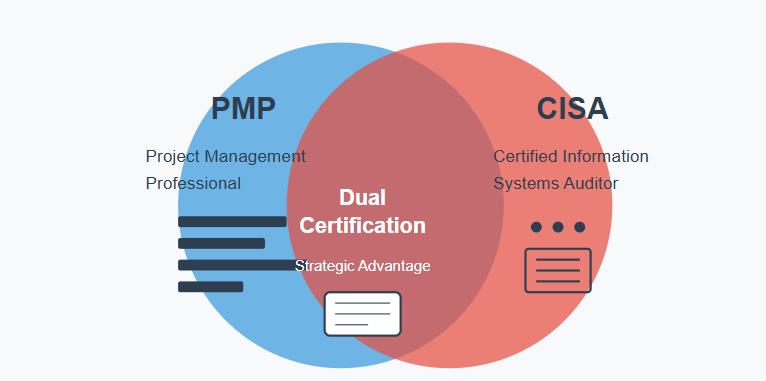The deployment of VPNs (Virtual Private Networks) has seen a substantial surge in diverse sectors and industries in the past few years. This surge can largely be attributed to the increasing demand for improved security and privacy in online communications. One particular instance where the use of VPNs has noticed a rise is in safeguarding ChatGPT Unblocked.
ChatGPT, a sophisticated AI language model crafted by OpenAI, has emerged as an essential asset for both businesses and individuals. Its capacity to produce text resembling human conversation has led to its wide adoption in fields like customer service and content creation among others. As reliance on this invaluable AI tool surged, so did the necessity for secure access, consequently boosting the utilization of VPNs.
In essence, a VPN offers a safe conduit for your information’s journey, keeping it out of reach from hackers and other malicious entities. With its ability to encrypt your data and hide your IP address, VPNs guarantee that your communications with ChatGPT are private and secure. Given these advantages, it’s unsurprising that VPNs have risen in popularity for safeguarding access to ChatGPT.
Risks and concerns about using VPNs with ChatGPT
While VPNs provide improved security, they also come with their own set of risks and issues, particularly when used in conjunction with ChatGPT. A significant concern is the potential for VPN providers to access your data. Despite their assurances of privacy, certain VPN providers have been discovered to maintain logs of users’ online behavior, which is a clear warning sign regarding privacy.
One potential issue could be reduced connection speeds. VPNs, which reroute your data through multiple servers worldwide to hide your IP address, can occasionally cause slower connection speeds. This might be problematic when using ChatGPT, as it needs a steady and quick internet connection to work at its best.
Additionally, employing VPNs with ChatGPT can be hindered by legal constraints. Certain nations have regulations prohibiting VPN usage, thus creating challenges for users in these areas to safeguard their ChatGPT access via this technique. in regions where VPNs are allowed, the legislation regarding their utilization is unclear, introducing an extra level of complication.
Is VPN a solution to accessing ChatGPT?
Despite the potential dangers and worries, a considerable number of people still view VPNs as a practical method to access ChatGPT. This is primarily because of the robust security and confidentiality provided by VPNs. They encrypt your data and hide your IP address, substantially lowering the likelihood of your ChatGPT communications being intercepted by harmful entities.
The performance of a VPN is significantly influenced by the chosen provider. Reliable VPN providers place a high emphasis on user privacy and refrain from maintaining logs of user activities. They also allocate resources to high-speed servers to minimize the effect on connection speeds. Hence, when using a VPN with ChatGPT, selecting a dependable provider is essential.
Another factor to consider is the legal considerations of using VPNs in your area. VPNs can offer a secure method to access ChatGPT, but it’s crucial to comprehend the legal environment you’re in. Always investigate the laws and rules in your region prior to deciding to use a VPN with ChatGPT.
Best VPNs for ChatGPT Access
The market is teeming with a multitude of VPN providers, all claiming to offer top-notch service. Nevertheless, for securing your ChatGPT access, it’s crucial to choose a provider recognized for its dedication to user privacy and dependable service. Top VPNs for ChatGPT access encompass ExpressVPN, NordVPN, and CyberGhost.
ExpressVPN provides strong security features such as advanced encryption and a strict no-logs policy. It also offers high-speed servers in various locations, guaranteeing a dependable connection for ChatGPT access. NordVPN is another commendable option, recognized for its double VPN technology which enhances security. Conversely, CyberGhost, with its user-friendly apps and extensive server network, is a suitable choice for VPN beginners.
Alternatives to VPNs for ChatGPT Access
While VPNs are commonly used to secure ChatGPT access, they aren’t the sole solution. Other options such as proxies, Tor, and secure web browsers can also provide increased privacy and security. However, each of these alternatives has its own advantages and disadvantages.
Proxies operate in a comparable manner to VPNs by redirecting your web traffic via an alternate server and concealing your IP address. However, they differ as they lack the data encryption that VPNs offer, resulting in lower security. Tor, also known as The Onion Router, is a complimentary software that facilitates covert communication. Despite its superior anonymity, Tor can drastically reduce your internet speed. Secure internet browsers like Brave have inherent safeguards against trackers and advertisements but might not offer the same degree of IP concealment as either VPNs or Tor.
Security implications of using VPN for ChatGPT
Utilizing a VPN for ChatGPT can greatly enhance your security. A VPN adds an additional layer of protection to your ChatGPT communications by encrypting your data and hiding your IP address, thus reducing the risk of your data being compromised.
While using a VPN can provide benefits, it also carries potential risks. For instance, if your VPN provider maintains logs of your activities, your data may be vulnerable. Additionally, if the VPN connection fails while you’re using ChatGPT, your data could be compromised. Hence, it’s crucial to select a trustworthy VPN provider and consistently use a kill switch. This feature automatically disconnects you from the internet if your VPN connection is lost.
Things to keep in mind:
- VPN detection: ChatGPT can detect VPN usage, they might temporarily block your access. In such cases, try clearing your browser cookies and cache, changing the server location, or using a different browser.
- Not a guaranteed solution: No VPN provider guarantees uninterrupted access to ChatGPT. Some VPNs might have been blocked by ChatGPT, and the effectiveness of others might vary depending on the server location and settings.
- Account requirements: You still need a valid ChatGPT account to access it, regardless of whether you’re using a VPN.
FAQ about ChatGPT Access and VPNs
Is it legal to use a VPN for ChatGPT access? The legality depends on your location. In some countries, VPN usage is completely legal, while in others, it’s prohibited. Always research the laws in your region before using a VPN.
Will using a VPN slow down my ChatGPT interactions? While VPNs can sometimes result in slower internet speeds, this is usually unnoticeable. However, the impact on speed can vary depending on the VPN provider and the distance between you and the VPN server.
Can I use a free VPN for ChatGPT access? While there are free VPNs available, they often come with data limits and may not offer the same level of security as paid options. Therefore, it’s generally recommended to use a reputable paid VPN for ChatGPT access.
Expert insights on VPN usage for ChatGPT
Many professionals concur that a VPN can boost the security of your ChatGPT access. Cybersecurity specialist have stated in general that “Using a VPN for ChatGPT access can help protect your data from interception by malicious actors. However, it’s important to choose a reputable VPN provider and to be aware of the potential risks.”
All VPNs are created differently, selecting a suitable VPN depends in the privacy policy.
Conclusion
In conclusion, utilizing a VPN can offer a dependable method for securing your ChatGPT access, as long as you choose a reputable provider and are aware of the potential risks. Other options like proxies, Tor, and secure web browsers can also boost security. Regardless of the method

















